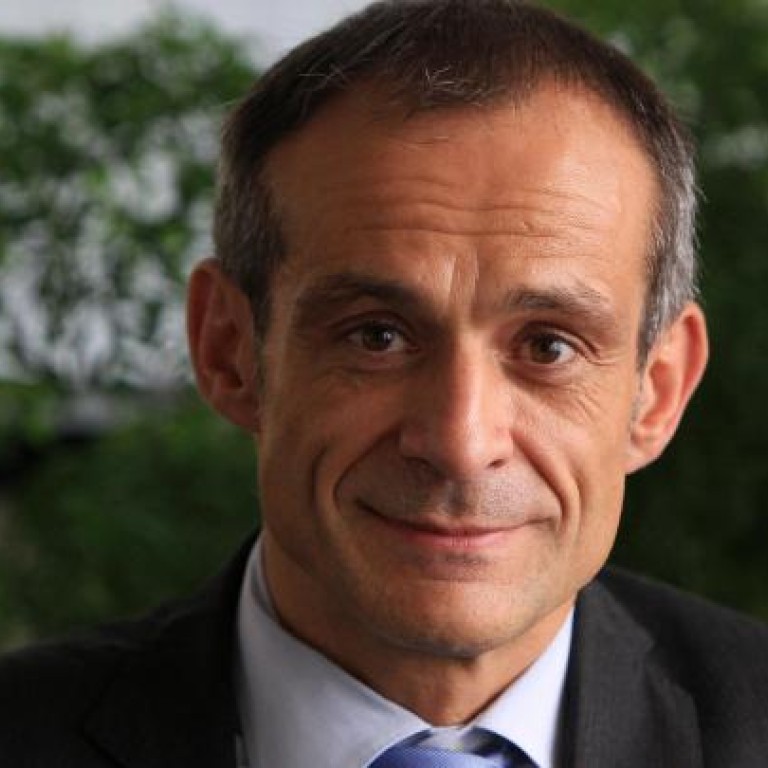
Schneider Electric opts for global management structure
Electricity distribution gear maker opts for decentralised management, with top managers placed near customers in regions where it operates
Schneider Electric chief executive Jean-Pascal Tricoire is one of the few top leaders of a European-headquartered firm who is based in Hong Kong.
Having worked in mainland China between 1994 and 1999, Tricoire saw rapid growth in demand for electricity distribution products there.
Schneider set up its first mainland joint-venture factory in Tianjin called Tianjin Merlin Gerin, which has been making circuit breakers since 1987.
Mainland China is Schneider's second-largest market after the United States, and ahead of France.
Schneider set up in France in 1836 as an iron and steel maker. The family-run firm later diversified into machine and electricity distribution gear production and became an industrial conglomerate in the 1980s. It has since narrowed its focus to energy-efficiency enhancement hardware and software, and has shed non-core operations.
Tricoire oversaw much of this transformation as Schneider moved into more technology-intensive products in the increasingly competitive supply chain.
Last year, the company made a net profit of €1.8 billion (HK$18.1 billion) on revenue of €22.4 billion. This year, it expects sales from its operations - excluding those from acquisitions - to be flat or fall slightly from last year. This is worse than had been expected because of a much weaker-than-anticipated demand from western Europe and a prolonged downturn in mainland China.
Tricoire sat down with the to discuss doing business in mainland China and how technology enables a far-flung company such as Schneider to function.
We do 30 per cent of our business in the Americas, 30 per cent in western Europe, close to 30 per cent in the Asia-Pacific and 10 per cent in Africa and the Middle East. Asia-Pacific has been growing the fastest in the past decade, and close to half of our employees are located in the region. The reason for me to be based in Hong Kong is not only because of our fast growth on mainland China but also in the rest of Asia.
We have developed the idea that corporate decisions should be made close to our customers so that we make our decisions based on the business we see on the ground. I personally don't like centralised management. I also make sure our leaders are visible to our employees so that they are not in the ivory tower.
Yes, with us, one can have global responsibilities while staying in one's place of origin, so everybody has equal access to top positions. In recent years, we have created lots of opportunities for global responsibilities for Asian talent. For example, our current head of China operations used to be the boss of a line of business internationally. Our senior managers have to manage transcontinental teams that have a balanced world view in decision-making while taking into account the local realities.
It would have been totally impossible 10 or 15 years ago. I have been a "nomad" for 17 years. Thanks to the mobile phone and notebook computers, tele and video conferencing allows us to form cohesive and collaborative communities and internal social networks.
What makes us different from our rivals is that we are very focused. We supply customers technologies that make their energy consumption more efficient. We do this by converging information technology with energy supply technologies. We introduced the internet on the factory floors in 1995, and later in homes, buildings, data centres and industrial plants. Our customers have real-time readings of their energy consumption.
Energy storage is not our focus. I don't want our company to get distracted. We apply the same set of technologies to five large markets and 13 industry segments. We are focused on demand management, that is, how to make sure we need less storage. We can do this by consuming more energy in the off-peak hours when it is cheap and green. We believe in "just-in-time" delivery of energy.
They are in an early stage of adoption. But they are moving fast, because in the central government's 11th and 12th five-year plans, there are clear indications that Beijing wants a better balance between economic growth and energy consumption intensity reduction. The 11th five-year energy intensity reduction target was not fully achieved but things have progressed a lot. To move faster, the price of energy should be raised. When people pay prices closer to the real prices of energy, they will be more interested to find ways to cut their energy bills.
Both. First, there is the political and administrative aspect to comply. Second, competition is toughening in the current economic environment. Cost efficiency is a big topic everywhere, since firms are facing rising labour costs while customers are more demanding on product quality, so the need for automation is widespread. Firms are also more conscious about their social responsibilities and corporate image in terms of their energy consumption intensity and carbon emission footprint. This is happening not only on the corporate level, municipality governments are also driving energy efficiency improvements.
We don't see firms doing exactly what we do, but plenty of firms there do similar things. Some of them are our partners, and we sometimes co-operate with them to serve the needs of overseas customers. More and more Chinese firms are emerging like what Japanese and South Korean firms did decades ago. It is part of history. In 10 to 20 years' time, our industry will see global firms originating from different regions competing with other global firms. That is why we have to empower our employees with global responsibilities to compete effectively. We are headquartered in France but our largest shareholders are American, yet we are a global firm.
Skiing, white water rafting, and back-packing trips with the family in Africa, China and Indonesia.

